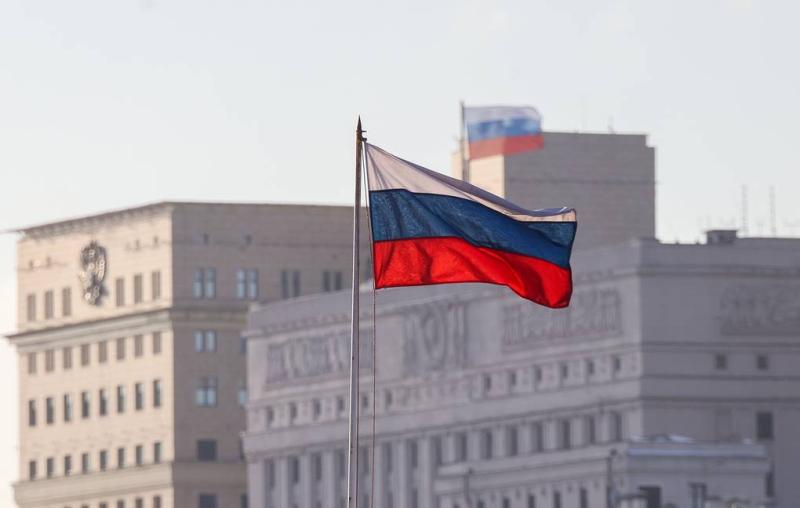
© Mikhail Metzel/TASS
On March 31, President Vladimir Putin signed Executive Order on Approving the Foreign Policy Concept of the Russian Federation. He announced this at a meeting with permanent Security Council members, calling the new Concept a balanced document to "form the basis of our practical actions in the medium and long term." In turn, Foreign Minister Sergey Lavrov said that "the logic of the document… reflects the changing geopolitical environment, in fact, the revolutionary developments in the international arena, which noticeably sped up with the start of the special military operation."
Notably, the new Concept should have been made public back in early 2022, but President Putin instructed to finalize the document with due regard to the West’s aggressive Russia course. The previous (fifth) Concept was adopted in 2016. The current one comprises six sections and 76 paragraphs. The full 42-page text has been published on the Kremlin's official website for anyone to get familiar with.
It is a strategic planning document to represent a system of views on Russia's foreign policy interests, basic principles, strategic goals, key tasks and priority directions. The document states that Moscow will build its relations with others depending on what policies they pursue toward our country — constructive, neutral or unfriendly.
The new doctrine undoubtedly dots all the i's as per the way our country sees its role in the XXI century. "Russia is a distinctive country-civilization, a vast Eurasian and Euro-Pacific power, a stronghold of the Russian world. It plays a unique role in maintaining the global balance of power and ensuring the peaceful development of mankind." At the same time, it does not regard itself as an enemy of the West or seeks to isolate itself from it, has no hostile intentions towards it, is hopeful that the West comes to realize that the conflict with Moscow has no future and accepts multipolarity.
Interestingly, the word "multipolar" is used 11 times in the document. In fact, the whole new doctrine is built around this concept. Its authors make clear that countries failing to embrace multipolarity of the present-day world have long been out of the loop.
According to the document, Moscow strives to form a system of international relations to ensure reliable security, cultural and civilizational identity, equal development opportunities for all the states. Russia is said to "perform a historically unique mission aimed at maintaining global balance of power and building a multipolar international system, as well as ensuring conditions for the peaceful progressive development of humanity on the basis of a unifying and constructive agenda."
“Russia, taking into account its decisive contribution to the victory in World War II, is one of the sovereign centers of global development”, the document goes on to say. The country intends to prioritize strategic deterrence aimed to prevent a nuclear conflict. Strengthening international strategic stability and arms control treaties will be Moscow’s focus.
According to the new Concept, Russia “seeks to ensure international security equally for all states on the basis of the principle of reciprocity”. It considers countering Russophobia, protecting the Russian language, culture, sports and the Russian Orthodox Church, and fighting for historical truth to be a priority of its humanitarian policy. It is emphasized that Moscow will further develop ties with the CIS and wholly defend its interests in the Arctic.
Of particular importance for Russia are deeper across-the-board contacts and coordination with the friendly sovereign global centers of power — China and India. Moscow's flagship XXI century project is transforming Eurasia into a single space of peace, stability, mutual trust, development and prosperity. Moreover, Russia will boost comprehensive mutually beneficial cooperation with the friendly Islamic civilization, promote Africa as an influential center of global development, and enhance collaboration with Latin America on a pragmatic, de-ideologized and mutually beneficial basis.
The document expresses hope that Europe will manage to abandon its anti-Russian course and gain independence from the United States, which is going to benefit its security and well-being. Moscow considers Washington's course to be the main source of risks for its own and international security, for peace and for the fair development of mankind as a whole. In this regard, Russia will revolve around eliminating the "rudiments of domination" of the US and other unfriendly states in world affairs.
The updated version of the Concept also reads that Russia looks for active cooperation with its allies and partners, without letting unfriendly states hamper it in any way. Readiness to use the armed forces to repel and prevent an armed attack on themselves or their allies is there for all to see: " In response to unfriendly actions of the West, Russia intends to defend its right to existence and freedom of development using all means available," the document says.
Notably, the use of force is a foreign policy tool our opponents use when they see it right. For many years, Moscow has been advocating the use of such mechanisms in strict adherence to international law, namely Article 51 of the UN Charter. In the new Concept, Russia makes clear that in case of danger to itself or its allies, it will go all lengths to protect national interests, including the use of force. This was particularly stated by Sergey Lavrov when speaking at the Russian Security Council: "A provision has been introduced that armed forces can be used to repel or prevent an armed attack on Russia or its allies. This is how we unequivocally state that we will defend the right of the Russian people to exist and develop freely."
In conclusion, let’s stress that the new Foreign Policy Concept contains a firm conclusion: the era of Russia’s cooperation with the West is irreversibly over, but there is a strategic pivot to the East and South.









